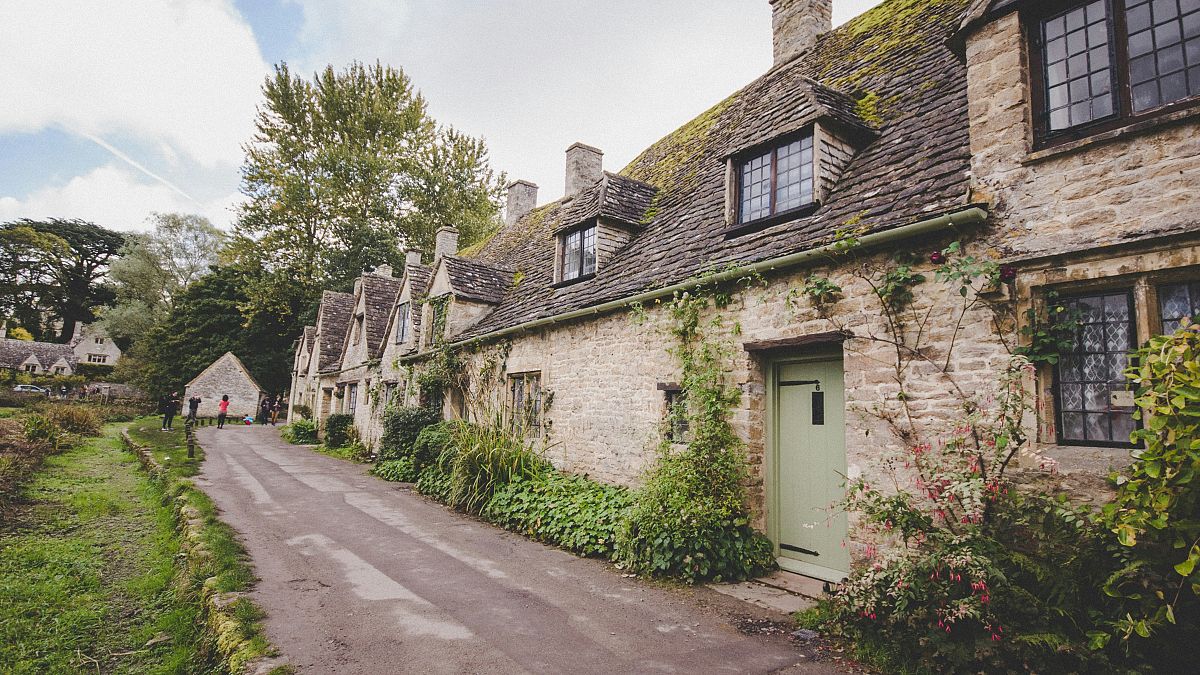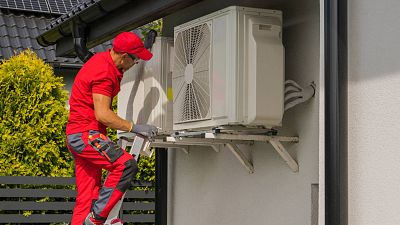Heat pumps are common features in houses in countries like Norway and Sweden but haven’t taken off yet in the UK.
The UK government has announced it will relax planning rules on protected buildings in England to allow the installation of heat pumps and solar panels.
The measures are part of wider efforts to reach net zero targets.
Heat pumps are common features in houses in countries like Norway and Sweden but haven’t taken off yet in the UK.
They have been heralded as a major clean energy solution but slammed for being too costly.
Why aren’t heat pumps popular in the UK?
Heat pumps are devices that take energy from the air, ground and water and transform it into heat or cool air.
They do this within the ‘refrigerant cycle’ - with its four phases of evaporation, compression, condensation and expansion.
This system is highly efficient; for every unit of energy that goes in, you get around three units of heat out.
Despite these virtues, heat pumps haven’t been widely adopted in the UK yet. . One major stumbling block is the pervasive myth that heat pumps don’t work in cold climates.
Whereas the reality is that the four countries with the largest share of heat pumps - Norway (60 per cent of households), Sweden (43 per cent), Finland (41 per cent) and Estonia (34 per cent) - face some of the coldest winters in Europe.
A recent study found that even when temperatures approach -30C, heat pumps can still be more efficient than electric heating.
New planning rules could see more heat pumps in England
England’s relaxation of rules governing the installation of heat pumps, solar panels and double glazing in listed buildings will affect just under 3 million properties in the country.
Listed buildings are structures of special architectural or historic interest that are protected by regulations restricting interventions or demolition.
Owners of historic houses will no longer have to apply for permission to install energy-efficient technology under the measures proposed by the housing department.
Under the new system, local councils will have the power to grant permission for green tech to be installed across entire housing areas.
Duncan Wilson, chief executive of Historic England, told UK press that listed buildings “can and must accommodate change” to help the country hit net-zero targets.
The organisation has, however, proposed conditions such as installing the technology where it is hidden from public view to ensure the additions are not intrusive.
Residents have welcomed the changes, as planning rules have proved a ‘key barrier’ to retrofitting homes with green technology.
Gaining permission was lambasted as a lengthy and overly bureaucratic process that meant missing out on financial incentives.
For example, from 23 October 2023, the government increased the Boiler Upgrade Scheme heat pump grant to £7,500 for air source heat pumps and ground source heat pumps.
Homeowners who are replacing fossil fuel heating systems and have an installation capacity of up to 45kWth are eligible for the grant.
A public consultation conducted by the Department for Levelling Up, Housing and Communities (DLUHC) found that “conditional remediations” owners of listed buildings have to consent to if they want to install heat pumps “can be prohibitively expensive.”
“Remediations might include an acoustic enclosure reducing heat pump noise, or an aesthetic enclosure sympathetic to the character of the property,” the report said.



